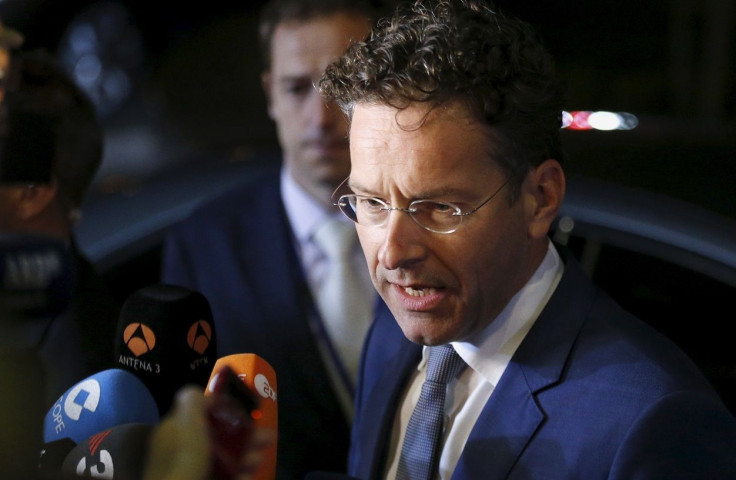Greece Bailout Talks To Resume; Eurozone Leaders Question Greeks’ Credibility

The talks on Greece’s bailout has been postponed following an “inconclusive” late-night session that lasted about nine hours on Saturday. The Eurozone finance ministers will meet again Sunday hours before facing a summit of all 28 European Union leaders.
The group discussed Greeks' proposal for reforms that aim at securing a bailout deal to prevent Greece from crashing out of the Eurozone. The nine-hour talk ended without agreement. Dutch Finance Minister Jeroen Dijsselbloem described the negotiations as “very difficult.”
“We have had an in-depth discussion of the Greek proposals, the issue of credibility and trust was discussed and also of course financial issues involved, but we haven’t concluded our discussions,” the Eurogroup chief said to the reporters.
The ministers were sceptical that Greece would implement the necessary reforms. Many of the ideas in the latest measures proposed by Prime Minister Alexis Tsipras were rejected by the Greeks in the referendum earlier this month. Mr Dijsselbloem said the main issue was trust.
“How can we really expect this government to implement what it’s now promising,” he said. German Finance Minister Wolfgang Schaeuble added they will not rely on promises. And if Greece wants more money, it would have to do more than just promise reforms.
The problematic nation is asking creditors for €53.5 billion [$80.17 billion] to cover its debts until 2018. However, the European Commission, the European Central Bank and the International Monetary Fund believe the amount of the new bailout could cost up to €74 billion. The IMF might cough up the €16 billion, with the European Stability Mechanism, the EU’s bailout fund, could shell out €58 billion.
While the bailout talks appear unstable, the financial situation in Greece remains dire. The country has limited its cash withdrawals to €60 a day, and this is expected to remain for two months even after the government successfully signs a new deal.
Greece appear to have only two supporters in the Eurozone, France and Italy, while Germany, Finland, the Netherlands and Spain doubt the Greeks’ intent. The 28 leaders of the European Union will be discussing the matter further in Brussels on Sunday.
Contact the writer: a.lu@ibtimes.com.au






